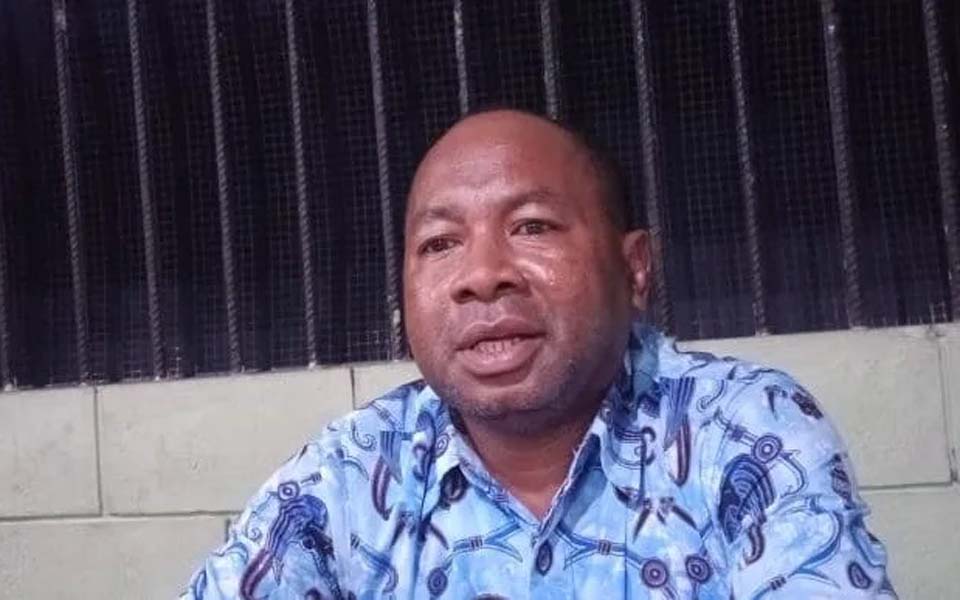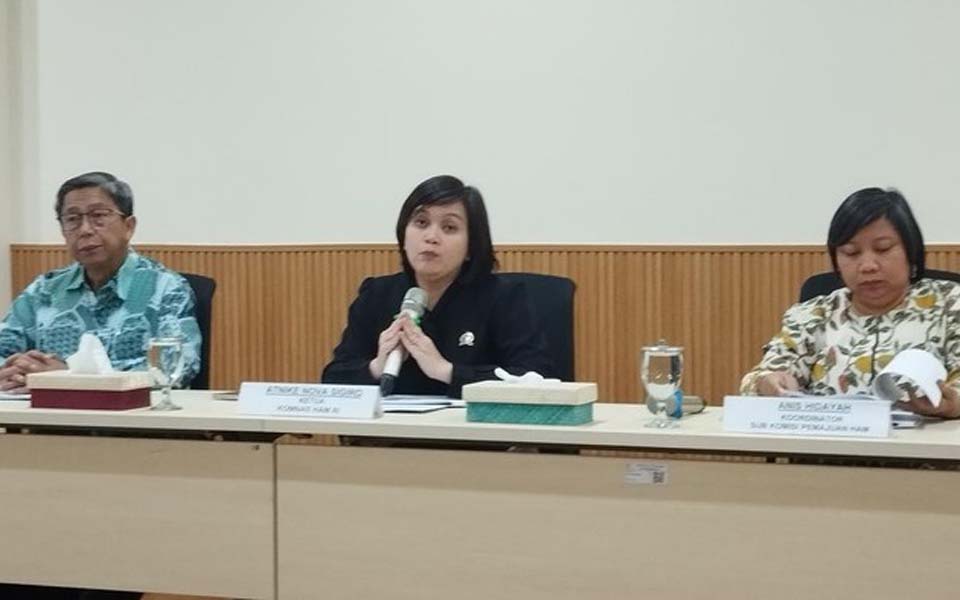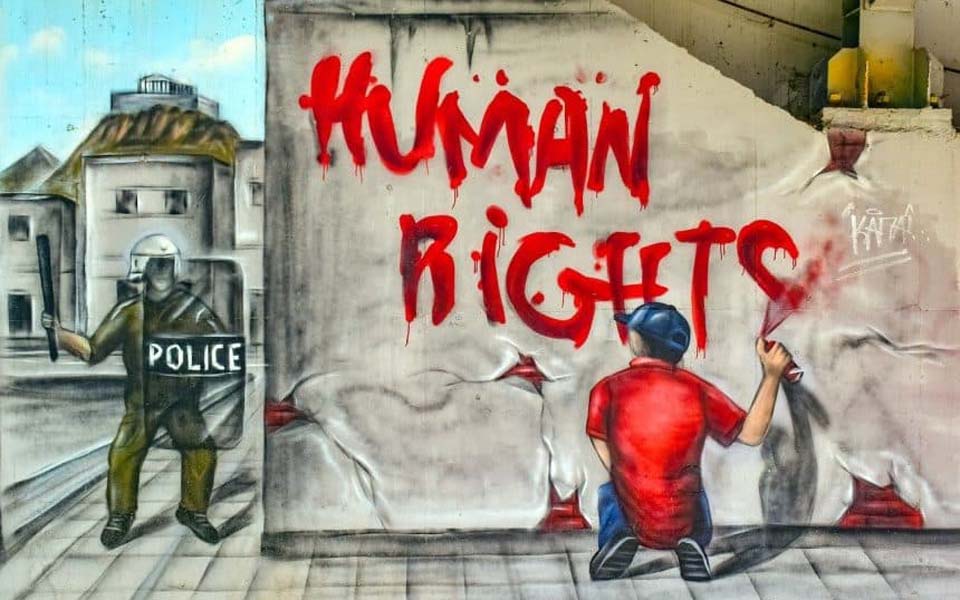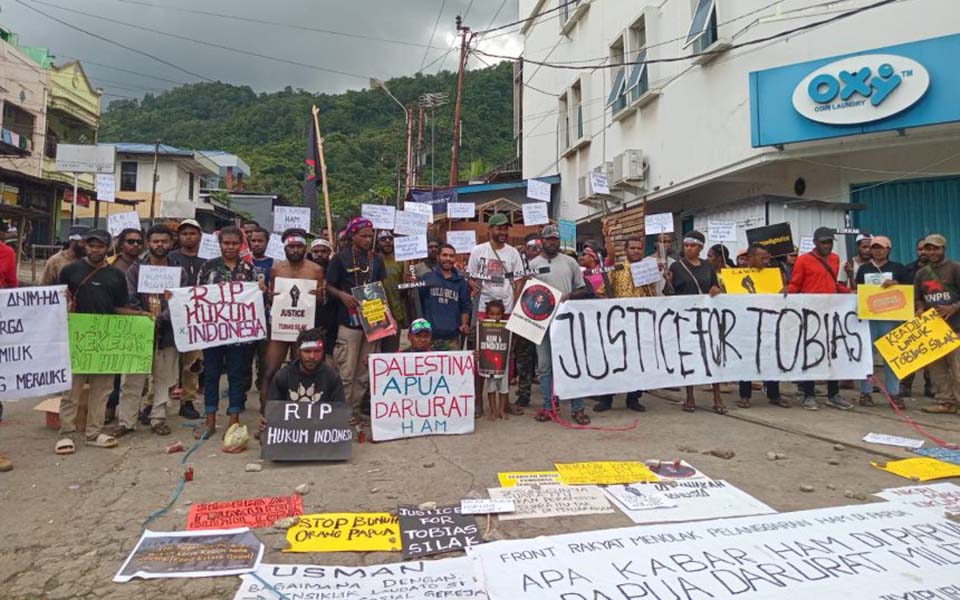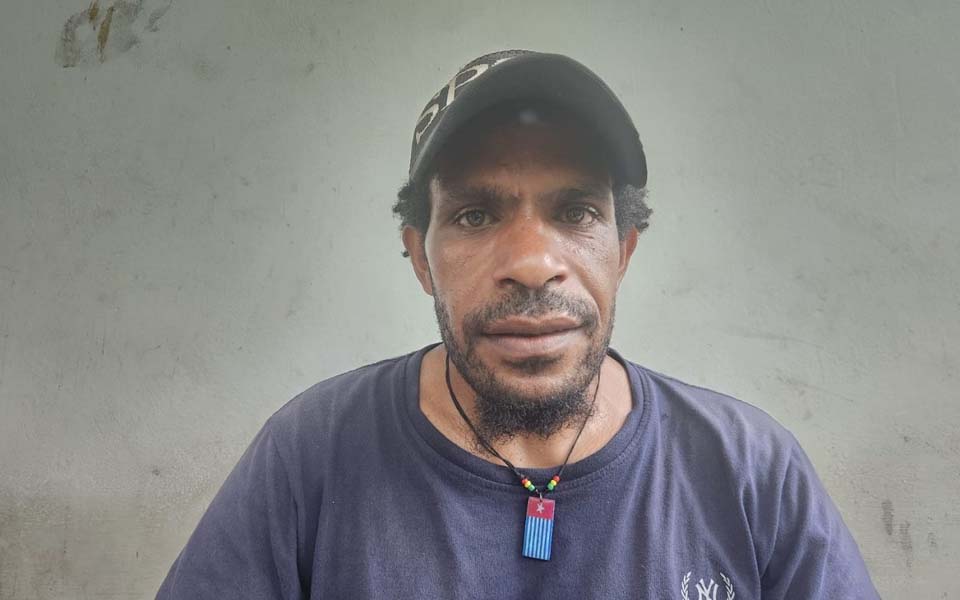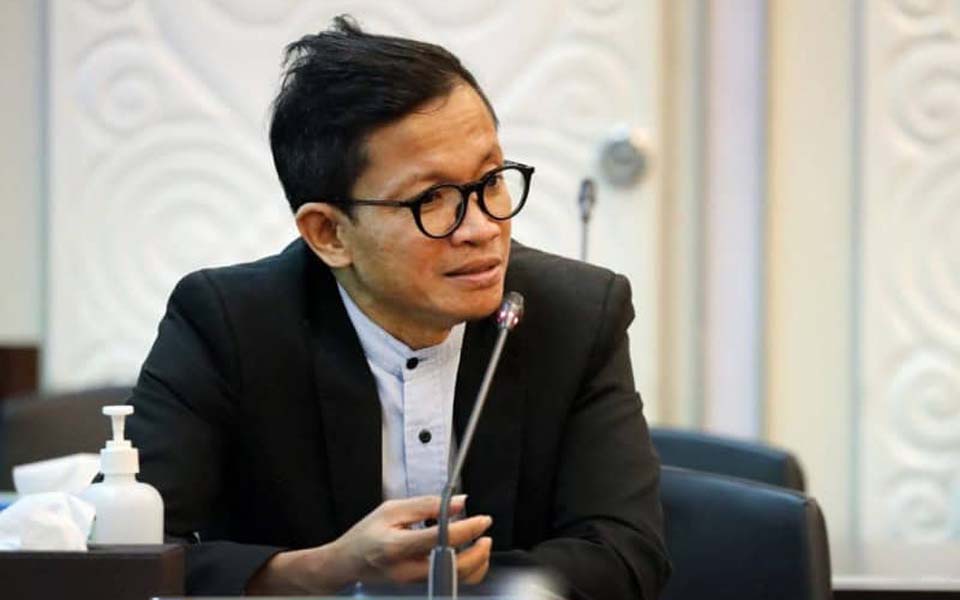Larius Kogoya, Jayapura – The Indonesian government still has outstanding issues of resolving cases of human rights (HAM) including in the land of Papua. The practice of impunity or legal immunity for the perpetrators has made finding a solution drag on further.
Institute for Human Rights Studies and Advocacy (Elsham) Papua Director Matheus Adadikam said that armed conflicts and human rights violations continue to occur today in the land of Papua. The government's promise to resolve a series of similar cases in the past have also not been realised.
"The implementation of Presidential Decree Number 17/2022 has also still left questions for victims of gross human rights violations. For example, (in) the case of the Bloody Wasior [tragedy], and the Bloody Wamena [tragedy], there are no signs of a resolution", said Adadikam at an online discussion titled Discussion Forum Reflecting on Human Rights in Indonesia in the Lens of 100 Days of the New Leadership that was organised by Amnesty International Indonesia on Saturday February 1.
Presidential Decree Number 17/2022 mandates the formation of a team for the Non-Judicial Resolution of Past Gross Human Rights Violations (PPHAM). The team ended its term on December 31, 2022.
"(The settlement) of the 2006 Bloody Abepura case and the 2014 Bloody Paniai [case] which went through the Human Rights Court process also did not provide a sense of justice for the victims. It is clear, the practice of impunity (for the perpetrators) by the state continues to occur", said Adadikam.
According to Adadikam, the government always prioritises political policy rather than law enforcement in resolving human rights cases. Therefore, the community still doubts the commitment of the Indonesian government in the era of President Prabowo Subianto's leadership.
"The government always makes politics the commander or reference in making decisions. That results in injustices in society. The ordinary people are saturated with promises. What they need right now, is implementation, not more promises", said Adadikam.
Adetya Pralandira from the Central Java branch of the Indonesian Forum for the Environmental (Walhi) stated that the foreign investment law has become a latent threat to the enforcement of human rights in Indonesia. A number of activists have suffered criminalisation and intimidation on the pretext of enforcing the law.
"HAM violations have been transformed into criminalisation, intimidation, and seizing [civil society's] living space. The neolib[eral] movement and capitalist gangs have entered the avenues of the Indonesian economy", said Pralandira.
Human rights activists Diva Suukyi Larasati stated that people's trust in the state has been increasingly eroded. This is a consequence of the authorities protecting human rights criminals.
"[Indonesia's] dark history continues to be repeated. How disappointed we are because we live in a new leadership era that has a track record of human rights violations", said Larasati, who is also the daughter of renowned human rights defender Munir Said Thalib, who was assassinated in 2004.
[Translated by James Balowski. The original title of the article was "Setop Impunitas Terhadap Penjahat HAM".]
Source: https://jubi.id/polhukam/2025/setop-impunitas-terhadap-penjahat-ham/






